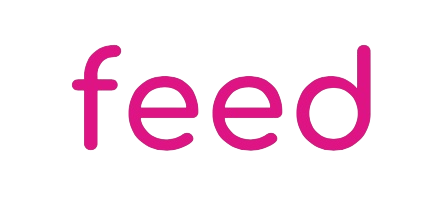BMJ Rapid Response: Food banks and infant formula: who knows best?
RE: Food banks and infant formula: who knows best?
Dear Editor,
We refer to the recent news analysis “Food banks and infant formula: who knows best?” by Jacqui Wise, published on 16 November 2020.
Our position is that, in addition to current pathways for emergency provision of infant formula, third sector family support organisations should be facilitated to provide first infant formula to formula fed babies experiencing food poverty, in a safe and dignified way. Our aim is to maximise the support pathways available for families experiencing food poverty.
As stated in the analysis, UNICEF UK acknowledge their guidance, which recommends food and baby banks do not provide infant formula to formula fed babies experiencing food poverty (1,2) is “being interpreted wrongly”. This is echoed by third sector organisations who provide support to families in crisis, service users and families themselves. Thus, we are calling for urgent clarity, and for UNICEF UK to re-write their guidelines clearly so that they cannot be misinterpreted to the detriment of the families and organisations they are intended to protect.
Whilst we support the recommendation of UNICEF UK, First Steps Nutrition and the National Infant Feeding Network for local authorities to put emergency formula provision pathways in place (2,3), this is currently not available in many areas. Foodbanks can raise this with their local authority, but this will not address the immediate needs of families requesting help. UNICEF UK suggest that emergency payments be given to families in these circumstances, but as our co-founder, Dr Rosie McNee, stated in the article, many food and baby banks do not have the infrastructure to provide money to families in need.
We question the assertation that health visitors and other such professionals can guarantee a sustained supply of infant formula. In many cases, it is these very health professionals and other authorities who are referring families in need back to food and baby banks for infant formula to mitigate risk of harm.
To address the difficulties in interpreting UNICEF UK’s guidelines, the lack of consistent access pathways and the safety concerns raised, Feed have worked with key stakeholders including health professionals, third sector organisations who support families in crisis, and families who have had experienced food poverty, to create clear and unambiguous guidelines (4) on the safe, direct provision of first infant formula to formula fed babies experiencing food poverty.
Our key recommendation is that food and baby banks accept and provide first infant formula only. As stated by UNICEF UK (5), First Steps Nutrition (6) and the NHS (7), all brands of first infant formula are suitable for babies from birth until they are 1 years old and there is “no evidence that switching to a different formula does any good or harm” (7). Thus, our clear guideline mitigates the concern that babies may receive “the wrong type of formula”.
Dr Chris Van Tulleken suggests that providing formula fed babies in food poverty with their sole source of nutrition is “a sticking plaster” that will “unquestionably do harm”. On the contrary, it is the failure to resolve a baby’s immediate need for food that puts them at the greatest risk of harm. Our guidelines allow for immediate and safe provision of food by food and baby banks where this cannot be achieved by other means, as well as ensuring the families who need ongoing support – whether that be infant feeding support, or other professional support – are signposted to the relevant authority to receive this.
Facilitating the safe provision of infant formula via food aid organisations maximises the support routes available to families experiencing food poverty, the concerns of whom UNICEF UK have thus far failed to address, and whose voices are omitted from Wises' analysis.
Feed is an independent charity that provides unbiased, compassionate infant feeding advice and support and does not promote or prioritise any method of infant feeding above another. We have no conflict of interest and do not represent the views of any other company or organisation. We advocate only for women and families. Our work in this area has been ongoing since we were founded in 2018 and is based solely on the premise of maximising the support pathways available to families experiencing food poverty and their babies. As one Baby Bank Manager told us:
“It can take days to process a request [for infant formula] and the bottom line is, while we wait for the wheels of bureaucracy to turn a vulnerable baby is left to starve. Meanwhile, those who can afford to buy formula can go to the local supermarket and purchase on demand.”
At Feed our ethos is to support all families with young infants whilst upholding the key values of safety, choice, dignity and respect.
Rosie McNee, Feed;
Erin J Williams, Feed
Stephanie Maia, Feed
Kate Wishart, Feed;
REFERENCES
1. UNICEF UK Baby Friendly Initiative. Infosheet: the provision of infant formula at food banks. Updated May 2019.
2. UNICEF UK Baby Friendly Initiative. A guide for local authorities: infant feeding during the coronavirus (covid-19) crisis. 1 May 2020
3. UNICEF UK baby friendly Initiative Statement on Infant formula in food banks. Updated 12 November 2020
4. Provision of infant formula: Guidance for food & baby banks. Feed. Updated October 2020.
6. First Steps Nutrition Trust. Infant milks: A guide for parents and carers; Accessed 17th November 2020.
7. Types of formula milk; your pregnancy and baby guide; Accessed 17th November 2020.
BMJ 2020; 371:m4841

